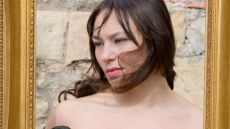MONTREAL — The Quebec government's move to legislate on secularism will come at the expense of individual freedoms, Montreal's archbishop said Thursday.
Archbishop Christian Lepine said in a statement that while the state must demonstrate neutrality, it must also demonstrate an openness and acceptance towards all its citizens.
Quebec’s Bill 21 would prohibit public servants in positions of authority — including primary and secondary school teachers, police officers, Crown prosecutors and prison guards — from wearing religious symbols on the job.
Premier Francois Legault's government has also invoked the notwithstanding clause in the Constitution that would block people from challenging the law the over rights violations.
"How can one not see that the prohibition against wearing religious symbols is both an obstacle to upholding freedom of conscience and religion, as well as an attack on human dignity, since citizens would be required to conceal their religious identity in the name of a presumed neutrality?" Lepine said.
"A state that claims to be neutral in this subjective fashion cannot really claim to respect the dignity of its citizens because society and its diverse members are not neutral."
He pointed to the government's plan to extend the bill to teachers as an example, raised by the Quebec Assembly of Catholic Bishops in March.
"If teachers cannot wear religious signs at their discretion, the message given to children and youth is that religion has no place in the public sphere, thus relegating those adhering to their religious practice or tradition as second-class citizens," he said.
Public hearings into the bill wrap up in Quebec City on Thursday and Immigration Minister Simon Jolin-Barrette wants to see the bill passed by mid-June.
Lepine said taking away individual freedoms in the name of state neutrality is a slippery slope.
"Relativizing the individual freedoms of citizens in the name of establishing the separation of religion and state and of upholding religious neutrality is a dangerous drift towards a closed form of secularism that tends towards the gradual elimination of individual and collective public expressions of belonging to a religious or faith community," Lepine said.
Instead, Lepine suggested the government promote a form of secularism where the state preserves, protects and promotes freedoms in the public sphere, allowing for a constructive dialogue in mutual respect.




